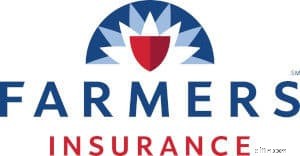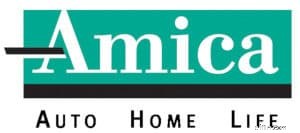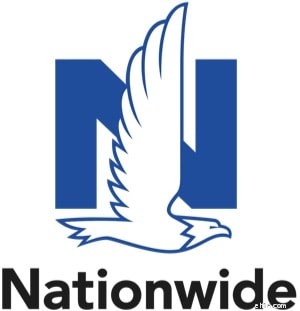Le migliori compagnie assicurative per i proprietari di case negli Stati Uniti
La polizza assicurativa del tuo proprietario di casa ha un grande lavoro:
Per proteggere il tuo più grande investimento in un mondo soggetto a pericoli imprevedibili come le tempeste di vento, incendi boschivi, e colpi di fulmine, per dirne alcuni.
Vuoi un piano che sia all'altezza della sfida se qualcosa di imprevisto minaccia il valore della tua casa.
Quando tutto è calmo, lo stesso piano dovrebbe rimanere in secondo piano e non richiedere alcun pensiero.
Il modo in cui costruisci la tua polizza per i proprietari di abitazione ti aiuterà a determinare come si comporta, ma vorrai anche collaborare con una compagnia assicurativa di cui ti puoi fidare.
Le migliori compagnie assicurative per i proprietari di abitazione nel 2021
Che tu stia cambiando assicuratore o acquistando piani assicurativi per la casa per la prima volta, sapere come funziona l'assicurazione sulla casa può portarti al piano di cui hai bisogno.
Esploreremo questi dettagli di seguito. Primo, diamo un'occhiata ad alcuni dei principali fornitori di assicurazioni sulla casa.
Questo elenco non includerà tutti i fornitori di assicurazioni affidabili e solidi nel paese, ma tutti e sei i vettori in questo elenco dovrebbero fornire un buon punto di partenza quando si acquista una copertura.
Seleziona il tuo stato per iniziareTravelers
 The Travelers Company has more than 16 decades of service under its iconic umbrella. Along with great rates and a strong reputation, the company has a national presence.
The Travelers Company has more than 16 decades of service under its iconic umbrella. Along with great rates and a strong reputation, the company has a national presence.
Having a national presence matters with homeowners insurance because a regional company can get overwhelmed when a huge national disaster like a hurricane hits their area. A national company has more diversity and can more easily weather storms.
You may not find as many discounts with Travelers compared with other companies, but the carrier has competitive rates and it has superior ratings from the independent rating agencies such as A.M. Best and Moody’s.
The Better Business Bureau also gives The Travelers Co. high marks for customer service.
Liberty Mutual
 Your ability to customize a homeowners insurance policy to meet your home’s specific needs can help you save money.
Your ability to customize a homeowners insurance policy to meet your home’s specific needs can help you save money.
Liberty Mutual specializes in customizing policies which could explain why about 7 percent of the nation’s homeowners have Liberty Mutual insurance.
This size brings a certain amount of stability, which shows in Liberty Mutual’s excellent grades from the independent rating agencies.
The company does occasionally get knocked for its approach to customer service. The Better Business Bureau rates Liberty Mutual A-minus.
You can get policy discounts for staying claims-free, for having multiple policies with Liberty Mutual, and for keeping a higher deductible. Many homeowners prefer higher deductibles to save on premiums and to reduce the likelihood of filing an unnecessary claim.
Farmers
 Farmers Insurance specializes in property protection. The company ranks well with consumer groups and insurance rating experts.
Farmers Insurance specializes in property protection. The company ranks well with consumer groups and insurance rating experts.
The company has a large market share nationally, yet it maintains a low percentage of customer complaints. This is an impressive accomplishment, especially considering the company’s stable financial situation.
Ordinarily, we wouldn’t include a company that doesn’t underwrite its own policies, but Farmers seems to have established a seamless partnership with its underwriter, Zurich Insurance.
You can get discounts for at-home safety features and for buying a new home or going with new construction.
Amica
 Amica Insurance would rank higher on this list if customer satisfaction were the only factor. The company excels at customer care.
Amica Insurance would rank higher on this list if customer satisfaction were the only factor. The company excels at customer care.
Di fatto, a lot of the company’s market growth over the past few decades seems to result from positive word-of-mouth reviews.
The company excels at providing coverage across the board, but customers can also find coverage for specific items such as furs, gioielleria, and fine art which can be hard to insure because of their hard-to-define value.
You can get discounts for enrolling in autopay, bundling policies, and improving the safety and security of your home.
Nationwide Insurance
 Nationwide Insurance Co. is a recognized leader in the broader insurance market.
Nationwide Insurance Co. is a recognized leader in the broader insurance market.
With Nationwide, you’ll find solid financial stability and a wide variety of customizable options for your coverage which can help save money on premiums.
From a customer service perspective, Nationwide could use some improvement, but it still rates A+ with the Better Business Bureau because of its tendency to seek resolutions to customer complaints.
Nationwide also offers scheduled personal property coverage which can strengthen your policy’s ability to cover high-value items in your home.
Erie
 You could call Erie Insurance Co. our dark horse candidate on this list. It has an excellent financial footing, which separates it from its competitors. Erie’s property/casualty companies are rated A+ (Superior) by A.M. Migliore, a global credit rating agency with a unique focus on the insurance industry.
You could call Erie Insurance Co. our dark horse candidate on this list. It has an excellent financial footing, which separates it from its competitors. Erie’s property/casualty companies are rated A+ (Superior) by A.M. Migliore, a global credit rating agency with a unique focus on the insurance industry.
Purtroppo, it doesn’t offer the best options for discounts. But the company excels at customer service which can be difficult for an insurance company.
We also like the company’s ability to stretch coverage options to include things like identity theft recovery, home business protection, and coverage for your underground utility lines.
Erie is more likely than most companies to help with flood damage, pure.
Other Excellent Choices
The following companies also offer a strong financial foundation and excellent coverage options.
- All State
- American Family Insurance
- Progressive
- State Farm
- USAA
Best Homeowners Insurance Aggregators
As the Internet grows more intertwined with our shopping habits, more and more home insurance shoppers are turning to aggregators to connect them with insurance policies.
Here are a couple of our favorites:
- QuoteWizard: If you have specific needs for your homeowner’s policy, QuoteWizard can help you narrow down your search list. And you won’t have to include every detail of your life and property in order to use the service.
- SelectQuote: This service works a lot like QuoteWizard except it focuses on finding cost savings for your coverage. SelectQuote helps you compare policy discounts and other features, making it easier to find lower premiums.
If you use one of these, or another, service to find insurance, remember that your policy itself will come from an insurance company and not the aggregator.
It’s up to you to make sure the insurance company you choose has a solid financial footing which makes it more likely to be there when you need to file a claim, even if you go decades without needing a claim.
Building Your Coverage From the Ground Up
Your ability to save on premiums and your policy’s ability to protect your investment depends a lot on how you build your insurance plan.
Like car insurance, homeowners insurance includes several components:
- Dwelling Coverage: Your insurer will call your house a dwelling. This aspect of your coverage protects your home itself from perils such as storms, fuochi, and vandalism. The amount of dwelling coverage you buy can help determine how much of the other coverage types you have, pure.
- Additional Buildings Coverage: Your detached structures — garages, gazebos and even smaller structures like mailboxes and fences — will be protected by this part of your homeowner’s policy. This coverage tends to max out as a percentage of your dwelling coverage.
- Personal property: Items you can remove from your home such as electronics, oggetti da collezione, and even small appliances that aren’t built-in get covered by your personal property coverage. If someone broke into your home and stole your personal property, you’d file a claim on this coverage.
- Liability: Just like with auto insurance, an injury caused by some aspect of your home can mean you’re liable for the injured person’s medical expenses and even lost wages. Your liability protection will cover your responsibility if something like this happened at your home.
- Additional Expenses: Your homeowner’s policy can provide alternative living expenses if a storm or fire makes your home uninhabitable. It can also include an element of health insurance if you’d like to compensate someone after an injury on your property. (This is different from being ordered by a judge to pay which is when liability coverage kicks in.) These coverages will be optional in many policies.
How you build each of these components can determine a lot about your policy’s ability to protect your home.
Per esempio, if you have a large workshop full of expensive tools on your property, you may need to increase your coverage for additional buildings and personal property.
If you like to host dinner parties or if you have a swimming pool, you may want more robust liability coverage.
Your homeowner’s policy should match your home — both for the purpose of saving money on premiums and to have enough coverage to protect your investment.
Deductibles and Caps Add to Your Cost
We tend to measure a homeowners policy’s cost by its premiums, which average about $1, 200 a year. Your deductible and spending caps will also help determine your cost for coverage.
Deductibles
Many of the homeowner’s insurance companies on our list above will give you a discount for keeping a higher deductible.
Even if your insurer doesn’t state this discount explicitly, you can expect to save on annual costs with a higher deductible. Parlando in generale, higher deductibles create lower premiums because a higher deductible means you have to pay more out of pocket to unlock your policy’s coverage.
If you have a $5, 000 deductible, Per esempio, you’d need to spend $5, 000 out of pocket to repair your home before your insurance policy would help pay.
Raising deductibles will usually lead to direct savings on premiums, but don’t overuse this tool. If your deductible is too high, you may not be able to use your coverage when you need it.
Ad esempio, if you couldn’t possibly come up with $5, 000 to spend on repairs after a tree fell through your master bedroom, consider setting a more reasonable deductible and accepting the resulting higher premiums.
Higher deductibles have another advantage some homeowners like:They make it less likely you’ll file a claim which can lead to a nice claims-free discount on future years’ policies.
Spending Caps
Most policies will limit how much money they’ll spend to repair or replace your home. A policy with a lower spending cap can lead to savings on premiums.
But if your insurance policy isn’t big enough to replace the value you’ve lost, should you even have the policy to begin with?
Sì, some protection is better than no protection, but with something as valuable as your home, being able to fully replace your investment will be a must.
Per fortuna, home insurance is a sound financial investment:Americans can leverage about $200, 000 in protection if needed in exchange for paying about $1, 200 a year on average. That’s about $100 a month, which is less than many people pay for cable TV.
Other Policy Details
Some specific details within your policy will help determine exactly how an insurance policy pays when you need it:
- Named vs. Unnamed Peril: A named-peril policy covers your home in the event of a peril that’s specifically named in your policy. An unnamed peril policy covers you in the event of any peril unless the policy explicitly excludes it. You can save money with a named peril policy.
- Replacement Value vs. Cash Value: This distinction may seem minor until you have to file a claim. Getting a replacement value policy means your insurance could replace your damaged, destroyed, or stolen property with new stuff. A cash value policy means your policy will reimburse you the value of your lost property. The cash value of your stuff is typically less than the cost of a new property. Someone with rare collectibles will want to consider replacement value coverage which costs more.
Getting these details right when you buy your coverage can save you a lot of heartache and frustration if you need to file a claim.
You should also know that the vast majority of home insurance companies do not cover flood damage.
If you live in a flood zone you’ll need a special flood insurance policy.
Bottom Line:The Right Coverage Can Pay Off
Homeowners insurance can help protect your home’s value in the event of a storm, disastro naturale, or act of vandalism or theft.
You can help your policy do its job by making sure your coverage fits your home.
Having the right coverage amount, the right deductible, and the right policy details will pay off if you have to file a claim.
E, Certo, partnering with a leader in the home insurance business, like the ones we’ve listed above, can increase your sense of security even more.
You may have to spend a few extra hours researching coverage and comparing, but when your home is on the line, it’ll be time well spent.
assicurazione
- Ecco come un reclamo avrà un impatto sulla tua assicurazione auto
- Assicurazione informatica
- Tipi di programmi assicurativi e la loro relativa popolarità
- Puoi saltare questi 7 tipi di assicurazione (e risparmiare denaro)
- Costo dell'assicurazione dell'ombrello:cosa determina la tua tariffa?
- Polizza assicurativa per responsabilità civile generale - La prospettiva delle compagnie di assicurazione
-
 Il successore di Bitcoin? Valori più coerenti potrebbero rendere gli "stablecoin" un'opzione di criptovaluta più sicura
Il successore di Bitcoin? Valori più coerenti potrebbero rendere gli "stablecoin" un'opzione di criptovaluta più sicura Bitcoin è precipitato da un massimo di quasi 20 dollari USA, 000 nel dicembre 2017 fino a un minimo di 3 dollari USA 675. Quindi è comprensibile che alcuni utenti di criptovaluta potrebbero cercare ma...
-
 Cosa sono i prestiti pro soluto e i prestiti recourse?
Cosa sono i prestiti pro soluto e i prestiti recourse? I prestiti pro-soluto vs. recourse sono due categorie generali spesso utilizzate quando si acquista un prestito immobiliare. Ci sono, Certo, molti fattori da considerare quando si ottiene un prestito,...
-
 Che cos'è un mercato secolare?
Che cos'è un mercato secolare? Un mercato secolare è prevalentemente guidato e influenzato da elementi o forze che potrebbero essere presenti nel prossimo futuro. Le forze possono influenzare il prezzo o il valore di unattività fin...
-
 I rischi di un bonifico internazionale
I rischi di un bonifico internazionale Ci sono diversi rischi associati ai bonifici bancari internazionali. A causa dei numerosi rischi associati ai bonifici internazionali, la maggior parte delle transazioni viene monitorata dai governi....




